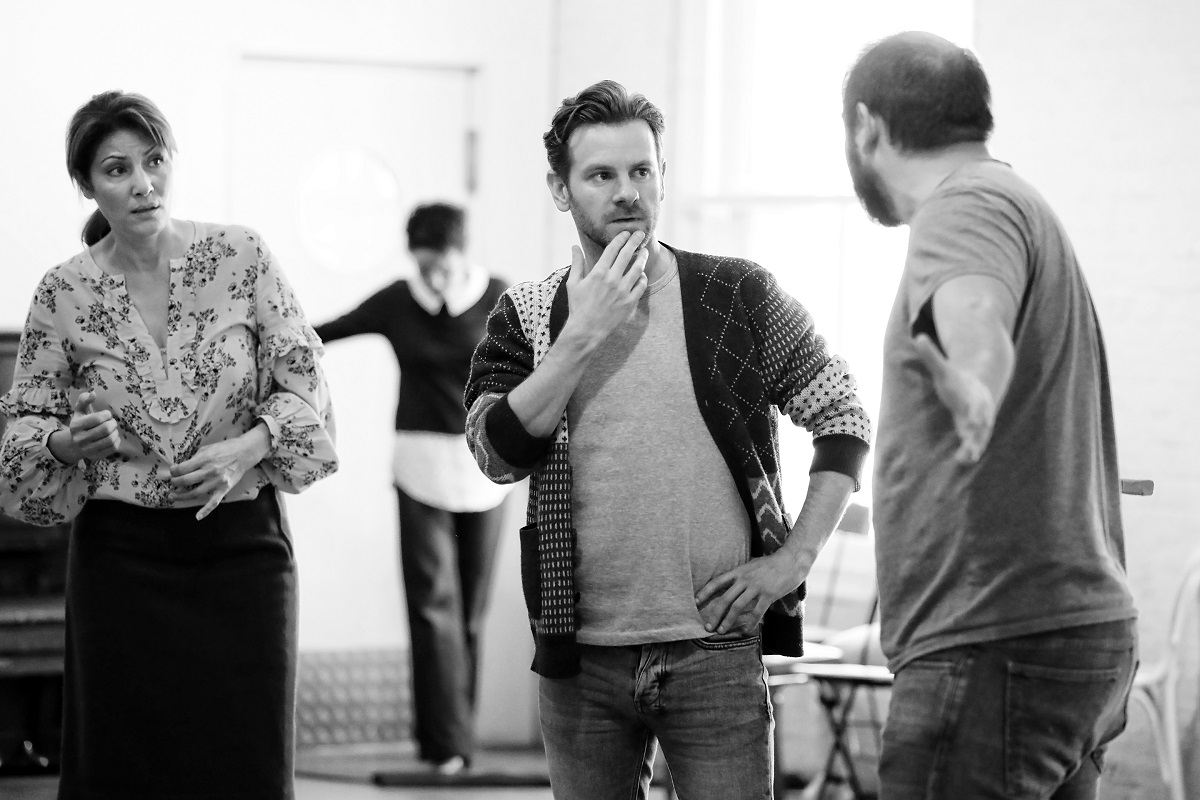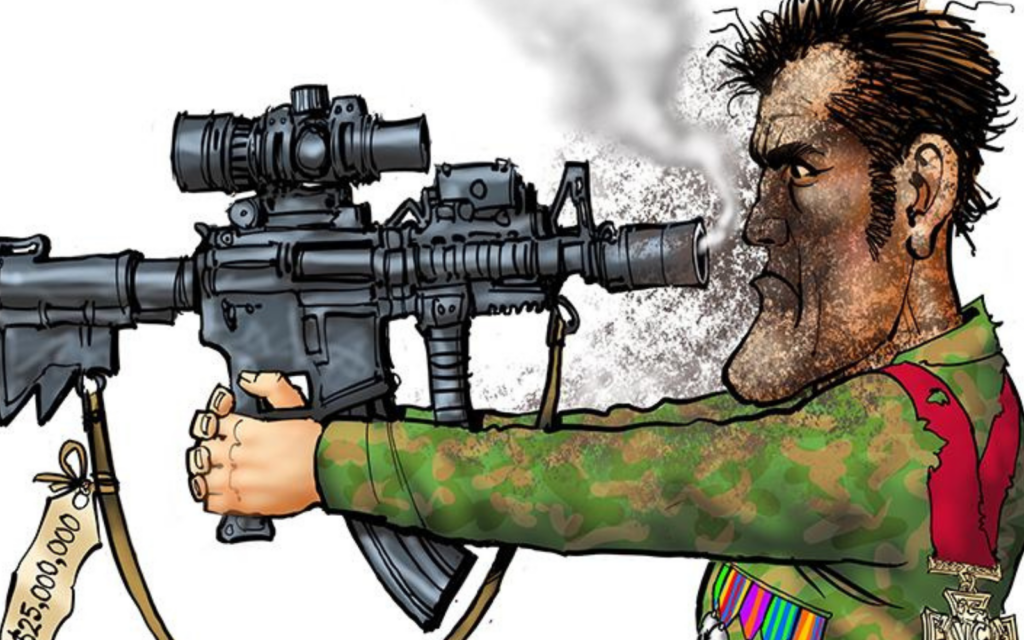There’s a temptation to view the works of Shakespeare as perfect and inviolable, never subject to revision. However, the uncomfortable fact is that Shakespeare’s plays have been reworked and re-edited since they were first published.
Some historians believe that our Macbeth is an abridged version of a lost longer version. Different editions of Shakespeare disagree over whether Prince Hamlet’s flesh is “sallied” “sullied” or “solid” and the oldest extant copy of the play, thought to be a pirated edition, begins the melancholy Dane’s famous soliloquy with, “To be, or not to be, Ay there’s the point.”
Bell Shakespeare have taken an unsentimental approach in their new production of Julius Caesar. Their modernising revisions aren’t so much about turning swords into guns and carriages into Cadillacs à la Luhrmann, but about tuning the pace of the play to suit today’s mainstream.
Nick Simpson-Deeks, playing the conspirator Cassius in the production, was attracted by director James Evans’ undogmatic approach. “The plays are not perfect,” he says. “I think Shakespeare would be horrified if he thought that people weren’t prepared to cut his work. Things shift. Treating the texts of Shakespeare like they are perfect, I think, is crazy.”
Julius Caesar, which portrays the assassination of the titular dictator, is politically relevant for reasons requiring little explanation. A 2017 American production, featuring a Caesar with a long red tie and an unsightly yellow bouffant, was sallied at by angry protestors. Had the protestors watched the play rather than invading the stage, they might have learned that Caesar’s assassination is, ultimately, a failure, as Rome descends into a brutal civil war.
“Julius Caesar is Shakespeare’s political thriller,” Evans says. “It’s a masterpiece of intrigue and treachery. Shakespeare explores what happens when fear infects a society, and I think everyone can relate to that. It deals with issues that are urgently contemporary – audiences will recognise themselves and their society in the play.”
Simpson-Deeks, who played Lee Harvey Oswald in a 2013 production of Stephen Sondheim’s Assassins, is drawn to Shakespeare’s layered villains. Cassius, who pulls his brother-in-law Brutus into the plot to kill Caesar, is a role Simpson-Deeks had wanted to play for a long time.
“The villains of Shakespeare are so interesting,” he says. “Of course, it’s fun to get to do all the things onstage that you don’t get to do in life – the psychopathy of the villains is really interesting, and making them sympathetic is a challenge I really enjoy.
“Cassius is tricky, because he manipulates people in different ways, and he reads people well and sees through them well. But that has to balance out with his genuine love for Brutus, his co-conspirator. He genuinely seems to love Brutus, but he’s also using him as a means to an end. That’s a terrific area to explore, that grey area.”
Simpson-Deeks first encountered the Bard in English class, but it wasn’t until he saw a production of Hamlet onstage in Sydney that he realised what all the fuss was about. “Shakespeare is written to be performed, not read,” he says. “That’s the joy of it.”
Julius Caesar is one of Shakespeare’s briefest plays, more than a third shorter than Hamlet by word count. The plot is tightly structured, and there are no vacillating princes in black tights to delay the fatal procession of events. Bell Shakespeare’s Julius Caesar will also feature an elaborate system of moving set elements that eliminate the need for cumbersome scene transitions. This makes it an excellent entry-level work for viewers who’ve never spent an evening with the Bard, says Simpson-Deeks.
“James has done a great job of streamlining this edit that feels very contemporary,” he says. “We are living in a time when the themes of creeping tyranny and the cost of violence and rebellion are on everyone’s minds. That’s a global concern. It’s going to be a punchy night at the theatre – no mucking around.”







